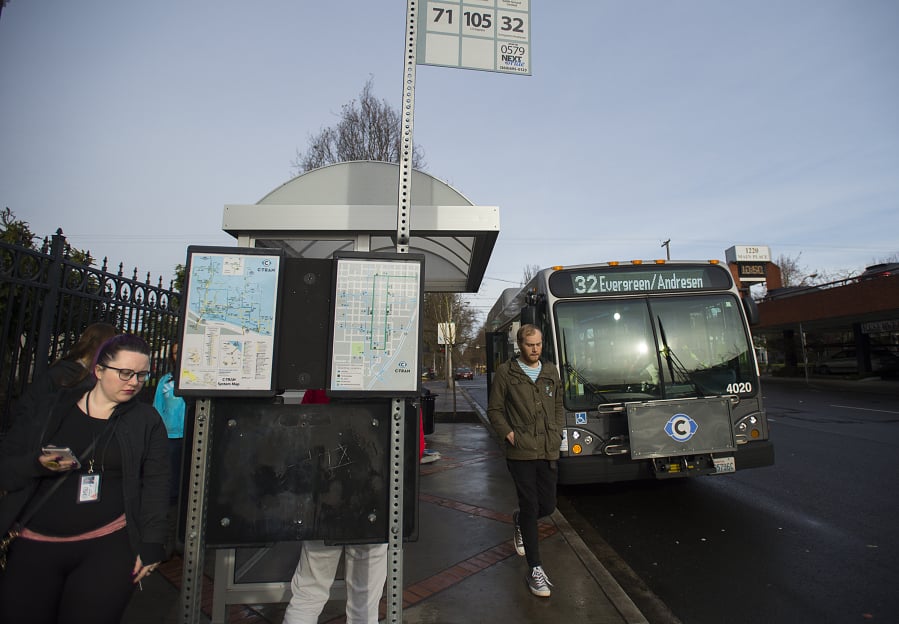A functioning bus system lends itself well to the demands of modern life, but remembering everything when rushing out the door can sometimes prove difficult. It’s easy to forget your bus pass or the exact cash for a fare.
Bus drivers don’t give any change. C-Tran’s automated machines don’t offer it up either.
A Columbian reader, who requested to remain anonymous, emailed the newsroom stating he recently forgot his bus pass. He paid $5 for a $3.85 fare. The experience prompted him to pose this question to Clark Asks, the paper’s feature where you ask and we investigate:
“C-Tran does not make change, so what do they do with this $1.15 windfall?”
Year-round, C-Tran carries passengers around Clark County from west to east Vancouver with its local bus service, to Portland with its express commuter buses and to the cities of Camas, La Center and Ridgefield with its rural connections.
The services are expanding, and the regional public transportation provider hopes to be one of the country’s leading transit agencies in a few decades time. Its vision statement does not indicate whether the planned improvements involve making exact change for its users.
So what’s up with the no-change policy?
All fare boxes explicitly state the amount required for certain fares and that no change is given, C-Tran spokeswoman Christine Selk said in an email.
But what if the passenger only has a $20 bill? Or worse, a $100 bill?
If an overage is considered substantial — say, $5 or more over the posted fare — a passenger can request a receipt from the bus driver, said Selk. That receipt can be presented at the C-Tran offices for a reimbursement, she said.
For smaller amounts, passengers are out of luck.
“Any cash that goes into our fare boxes is considered revenue and goes back into our system to pay for fuel, tires, utilities, salaries,” Selk said. “Anything revenue pays for at a transit agency.”
According to data provided by C-Tran, it collected $21,884 in revenue from overpayments between May and October 2018. Its total revenue for fixed route fares over the same six months was about $3 million.
An easy way to avoid overpayment, Selk suggested, is using the Hop Fastpass, which is, simply put, a reusable card. Riders only pay for trips they actually take.
“Instead of buying passes in advance, you earn them as you go; therefore, you get the savings of a pass without the up-front cost.”
C-Tran is part of a regional fare system with TriMet and the Portland Streetcar. Using the reloadable card, passengers can transfer among the nearby bus systems, though the fares vary, with service in Clark County being cheaper.




